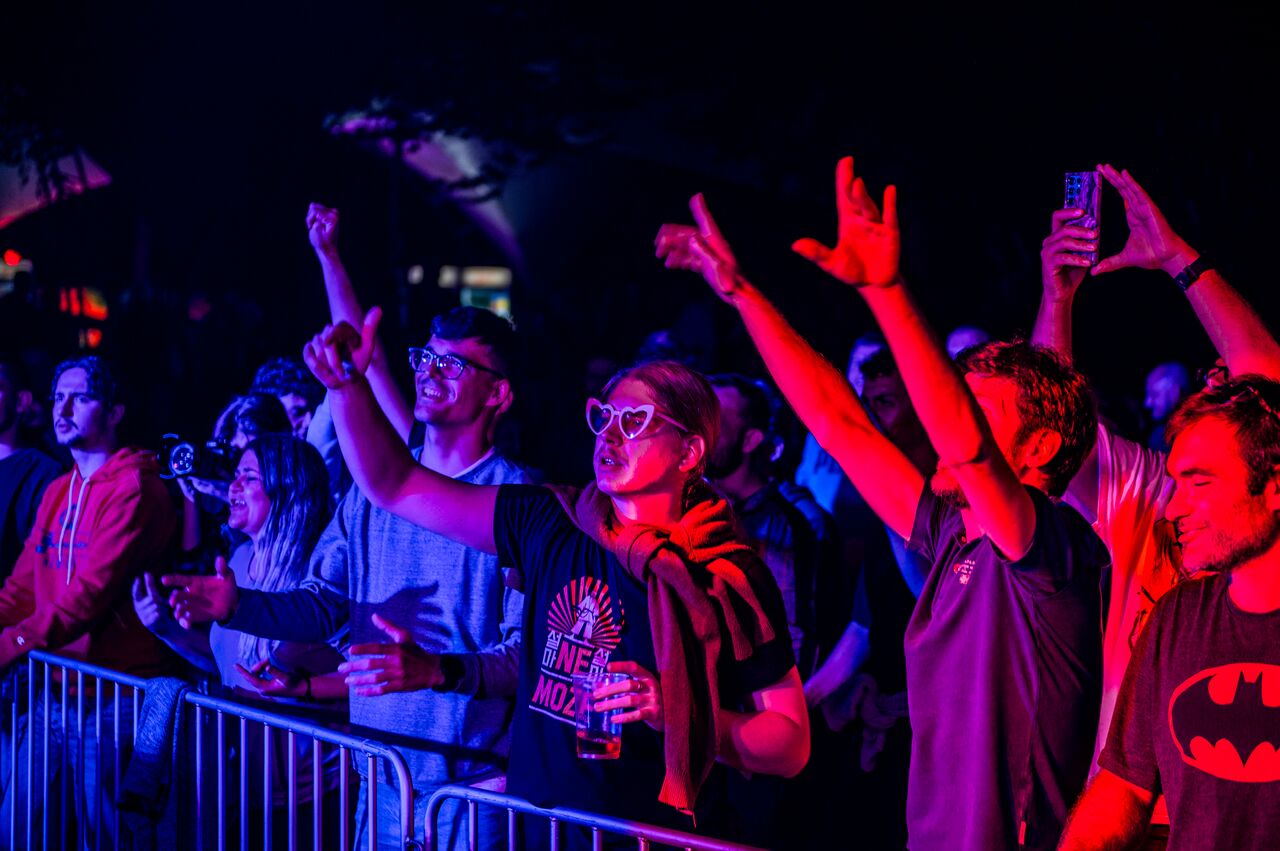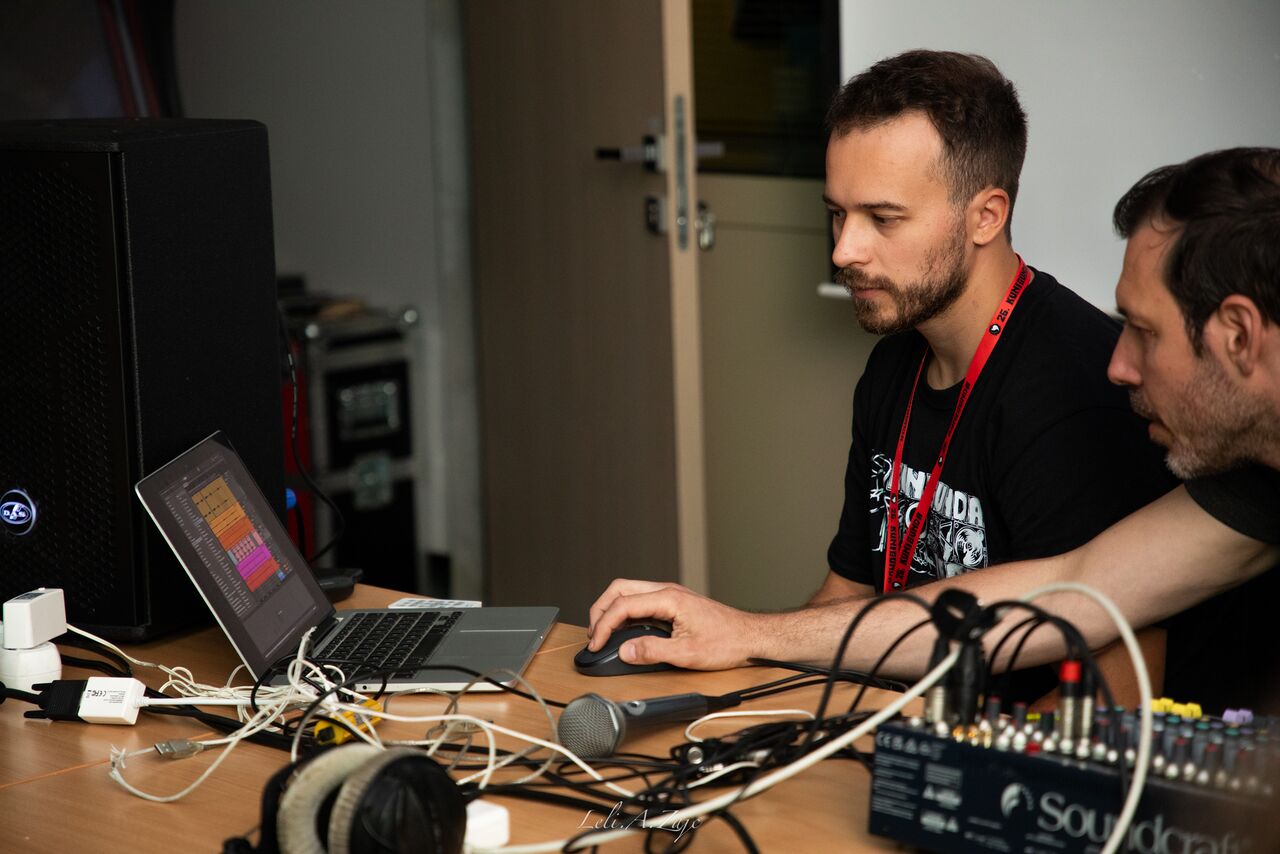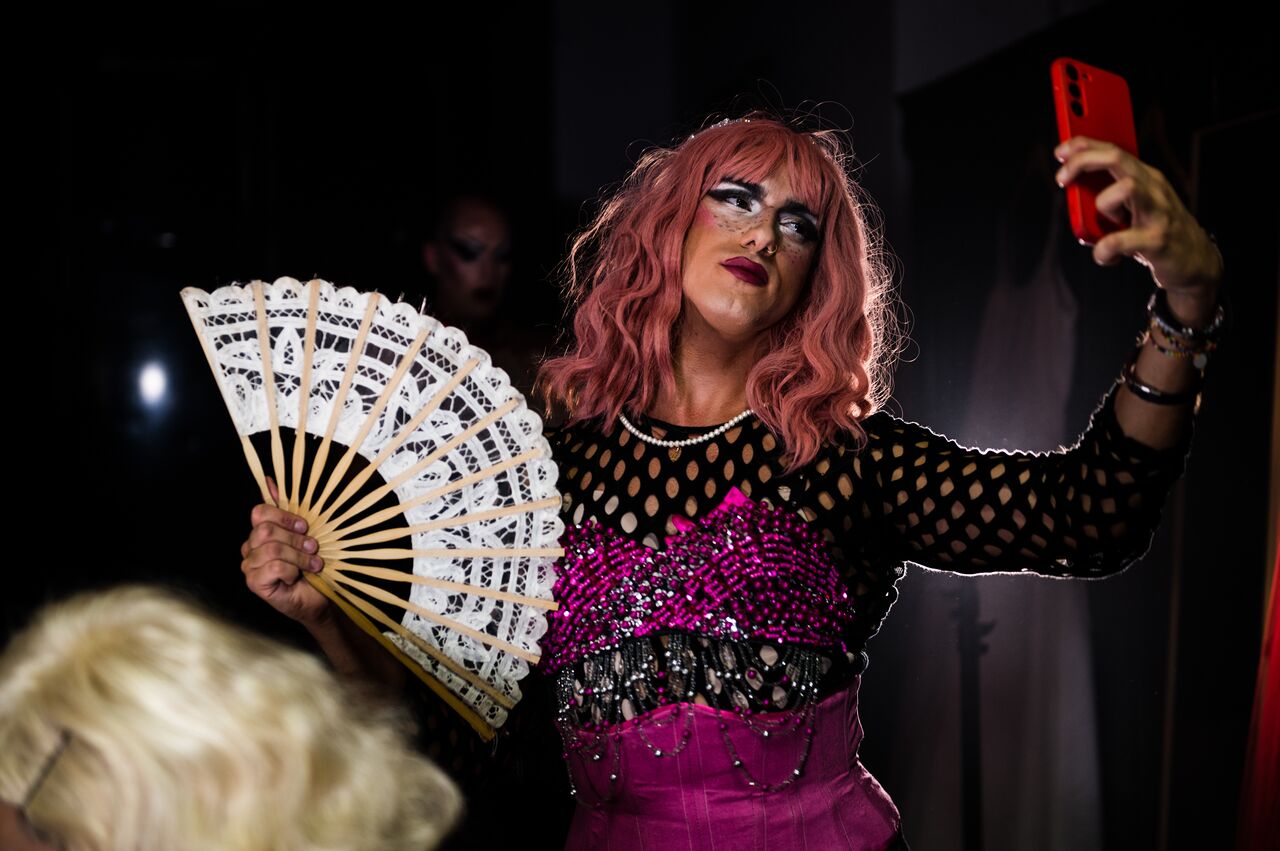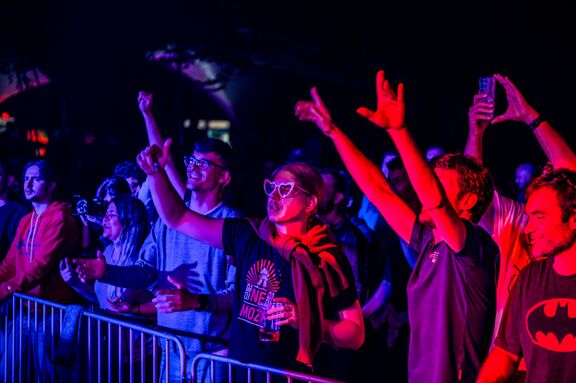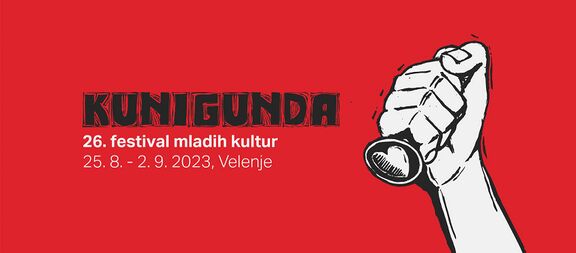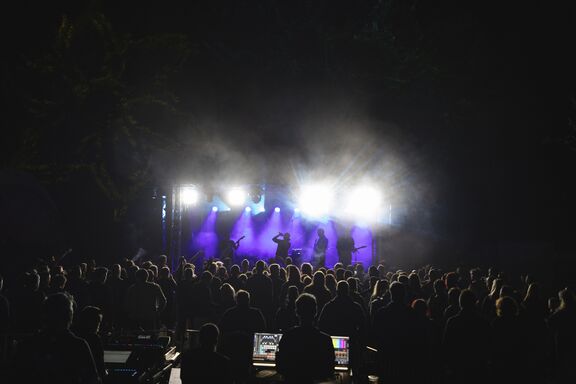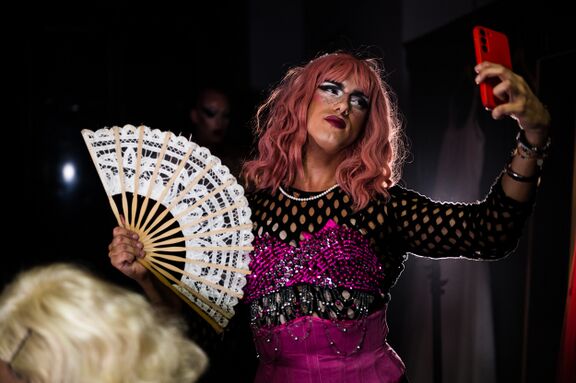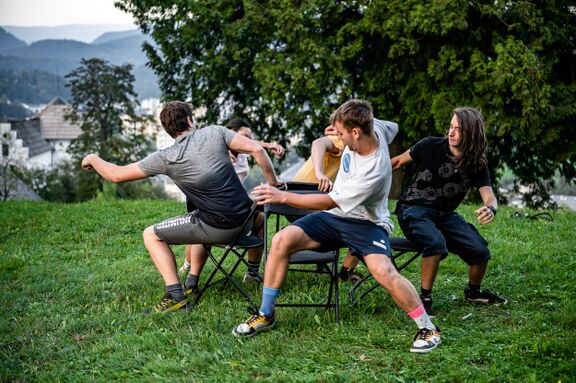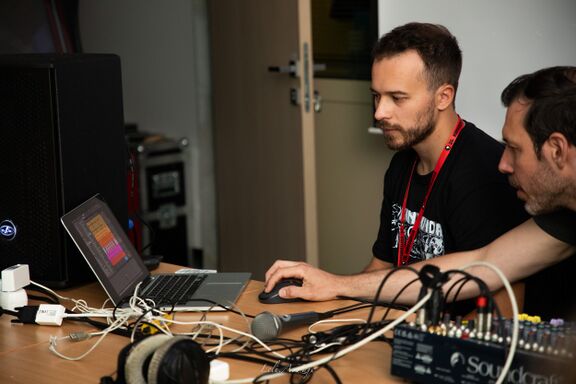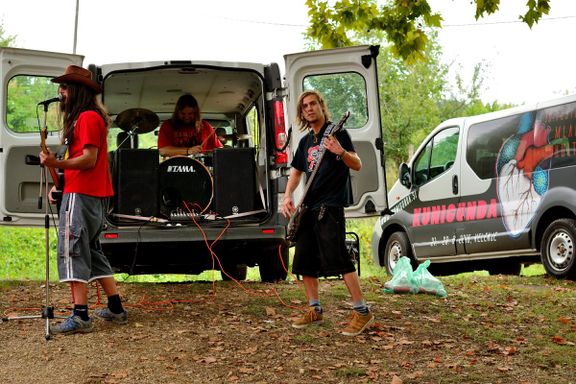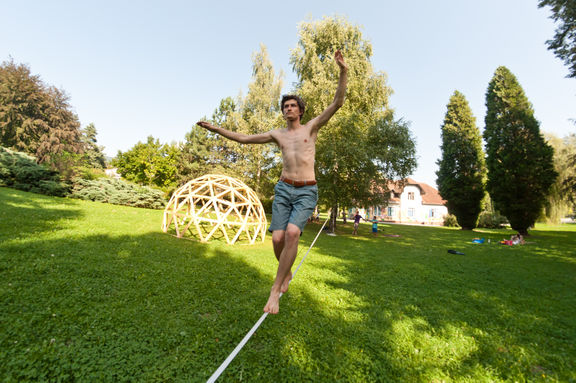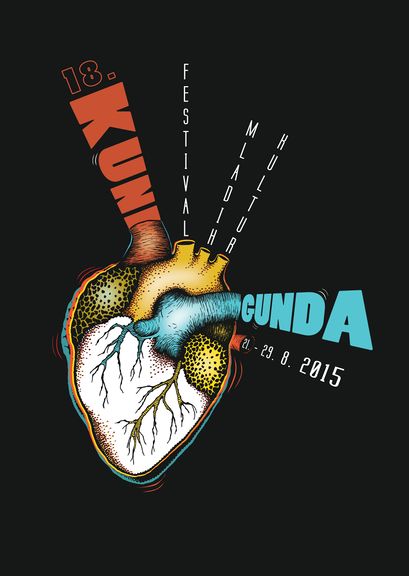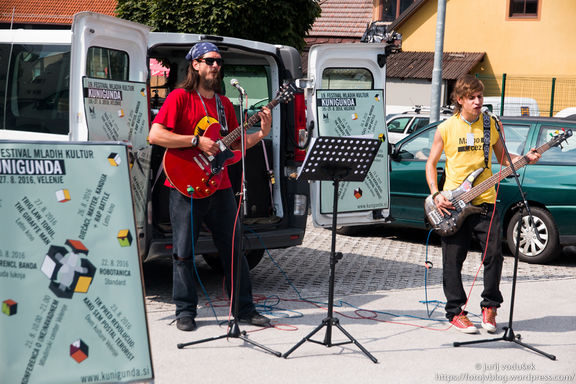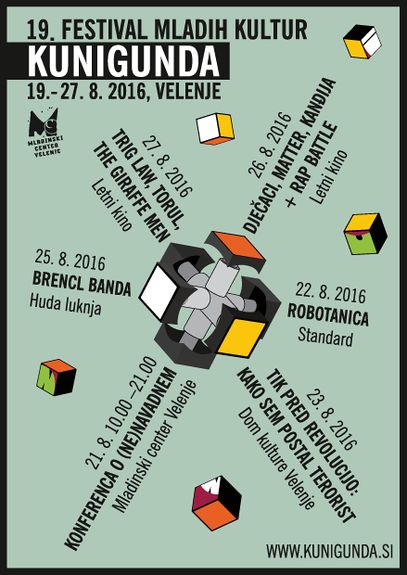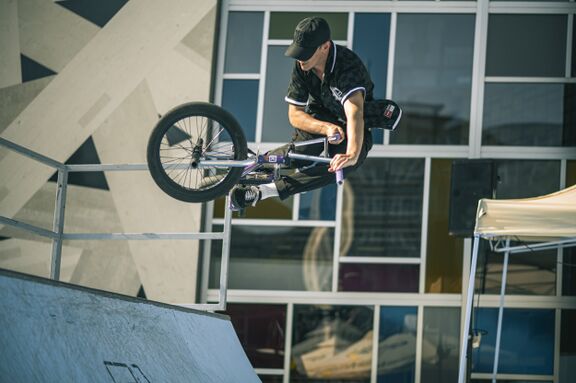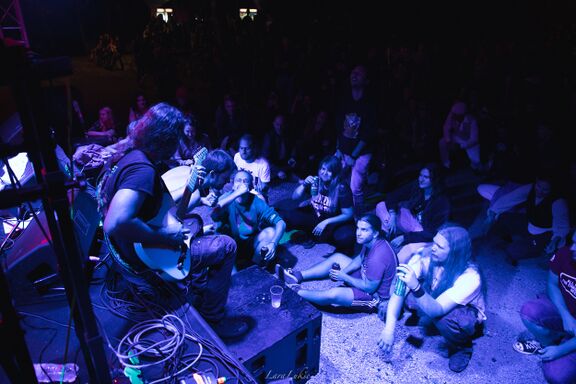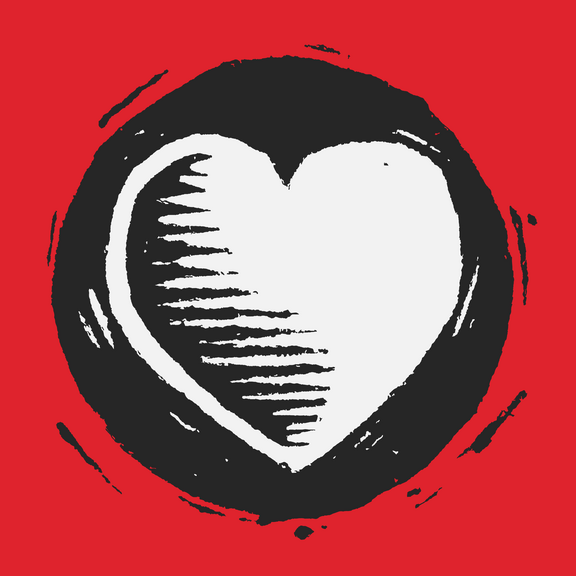Kunigunda Festival of Young Cultures
Background
The festival began in 1998 when three founders, with great aspirations but almost no funding, started laying the foundation. Their efforts, with a strong focus on alternative culture, turned Kunigunda into one of the driving forces of the youth scene in Velenje. Graffiti art adorned the Red Hall, and local bands increasingly gained opportunities to perform on the big stage. As early as the second year, the team organized an international camp, gradually acquired their equipment, and involved enthusiastic youth in leaving their mark on the local cultural scene.
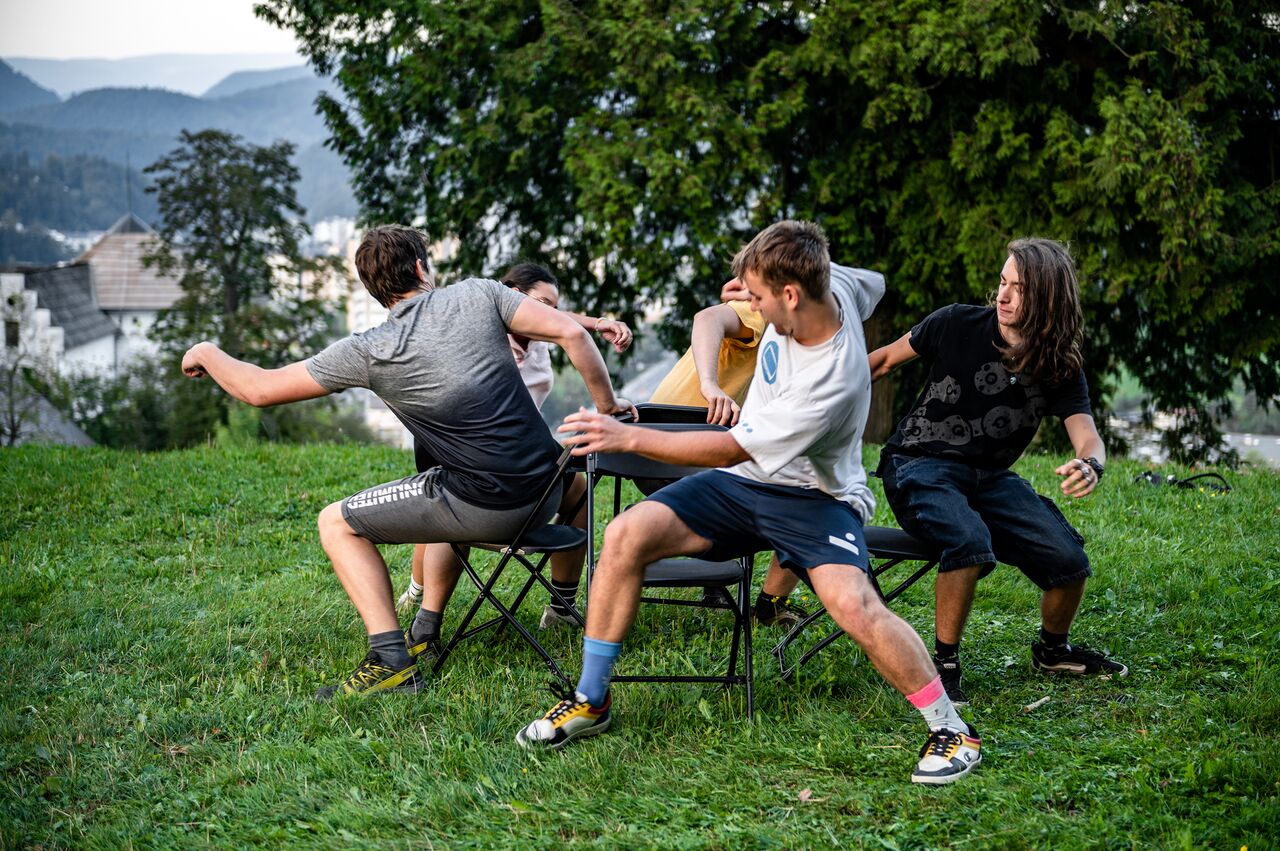 Interactive programme activities at the 26th Kunigunda Festival of Young Cultures in Velenje. Photo: Staš Gregorič
Interactive programme activities at the 26th Kunigunda Festival of Young Cultures in Velenje. Photo: Staš Gregorič
Programme
Now in its late twenties, Kunigunda Festival of Young Cultures is a symbol of young alternative culture in Velenje. The mosaic of local subcultures that gets shaped during the year on the local cultural scene is reflected in the festival’s program. It wouldn’t be wrong to describe its creators as a group of people who represent the passing of knowledge between generations of young, eager, socially critical, and informed individuals who care about events in Šalek Valley and the surrounding area. It was the passing of knowledge, combined with spending quality time and ensuring employment opportunities for those who want to work, that became a value that the festival began to emphasize as soon as the concept spread its wings. Interested and promising individuals are getting irreplaceable work opportunities in all areas that the organization of such a festival entail. The program is conceptually wide and diverse, comprising music, visual arts, dance, theatre, puppetry, installations, film and video screenings, literary evenings, new media art events, lectures, different own productions and urban sports. The events are spread throughout the city, from its parks and streets, from caves to museums and elsewhere, to the main stage at the Youth cultural club eMCe and the Open-air cinema at Škale lake. We hosted big names in music and other areas – from Dragan Živadinov, Gašper Tič and Sebastian Cavazza, to Borut Veselko, Uroš Kuzman, Aleksandar Perišić, Mitja Obed, Pia Zemljič, Janez Škof, Jože Slaček, Staša Guček, Saša Spačal and others. Along with top artists, Kunigunda’s organizational team is getting increasingly involved in the program. Projects like the national beatboxing championship and City on Water found their place at Kunigunda, while our own team produced projects critical to society, like Experiment: Tito’s Velenje, The Wedding: a celebration of love, Kunigudra and founding of the Autonomous Republic of Kunigunda (ARK). Kunigunda is constantly evolving, reconstructing, and reconfiguring itself, injecting culture in veins, slapping the faces of the prepared and unprepared alike. And will continue to do so in the years to come.
Music
Kunigunda’s stage was a host to many well-known artists from all directions (in an abstract as well as artistic sense). In the spirit of emphasizing all cultures and musical genres, we headbanged with metal heads, banged with rappers and MC’s, raved with DJ’s, danced to reggae and ska and enjoyed everything that fits anywhere in between. Bands like S.A.R.S, Dubioza Kolektiv and Kultur Shock visited the castle maiden before they put their names up with those most well-known. The festival hosted many other famous artists – Jeru the Damaja, Senser, Edo Maajka, Kiril Džajkovski, Torul, Elemental, Dječaci, Matter, Let 3, Sassja, Kandžija i gole Žene, Within Destruction, General WOO, Velebor, The Stroj, Ana Pupedan, Kiša Metaka, Anja Bukovec and Terrafolk, Raggalution, Vojko V, Brkovi, Koikoi, Smoke Mardeljano, Ajs Nigrutin, Stoka, King Buffalo, Demolition Group, Nervecell, Niko Novak, Battalion of Saints, Vazz, Masayah, Noctiferia, Repetitor, Kaoz, Bakalina Velika and many others – all of which shaped the musical image of Kunigunda.
See also
External links
- Kunigunda Festival website (in Slovenian)



